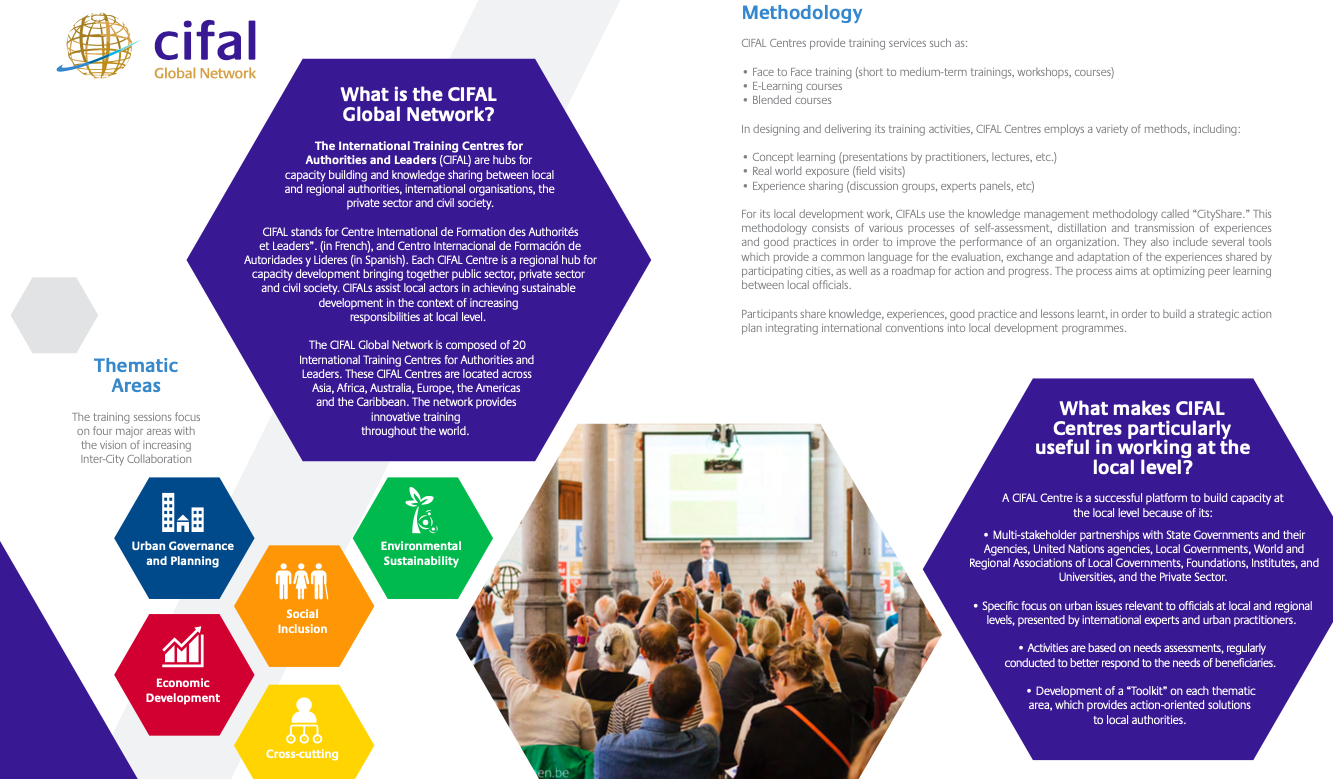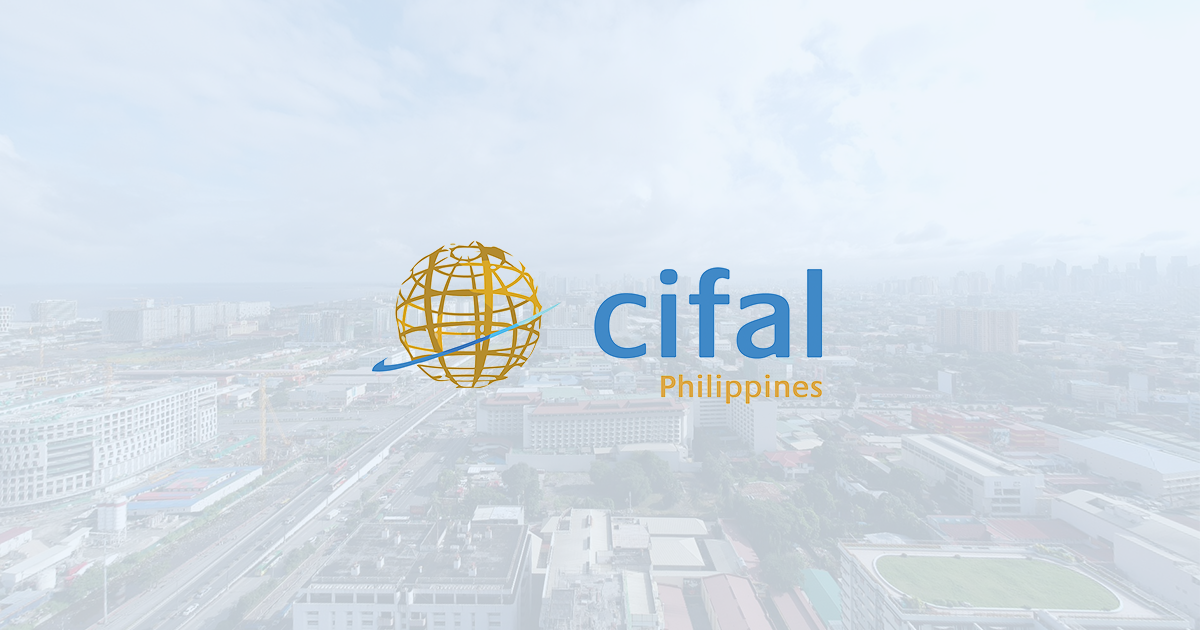APPROACH

The central purpose of CIFAL’s training programs is to develop and strengthen human capacities to better respond to development challenges. CIFAL centers rely on a facilitative approach that aims to:
- Facilitate the transfer of knowledge, experiences and best practices amongst government officials, private sector and civil society leaders
- Enhance capabilities to effectively perform relevant tasks
- Encourage cooperation and the development of multi-stakeholder partnerships
- Provide networking opportunities leadings to city-to-city collaboration
CIFAL centers provide training services such as:
- Face-to-face training (short to medium-term trainings, workshops, courses)
- E-learning courses
- Blended learning courses
In designing and delivering its training activities, CIFAL centers employ a variety of methods, including concept learning (presentations, lectures), real world exposure through field visits, and experience sharing.
For its local development work, CIFALs use the knowledge management methodology called “CityShare.” This methodology consists of various processes of self-assessment, distillation and transmission of experiences and good practices in order to improve the performance of an organization. These also include several tools which provide a common language for the evaluation, exchange and adaptation of the experiences shared by participating cities, as well as a road map for action and progress. The process aims at optimizing peer learning between local officials.
Participants share knowledge, experiences, good practices and lessons learnt in order to build a strategic action plan integrating international conventions into local development programs.
What makes CIFAL centers useful in working with local authorities is its specific focus on urban issues relevant to officials at local and regional levels. Activities are based on needs assessments, which are regularly conducted to better respond to the demands of beneficiaries.

![[RIGHT]unitar_logo](https://cifal.up.edu.ph/wp-content/uploads/2024/01/RIGHTunitar_logo.png)
